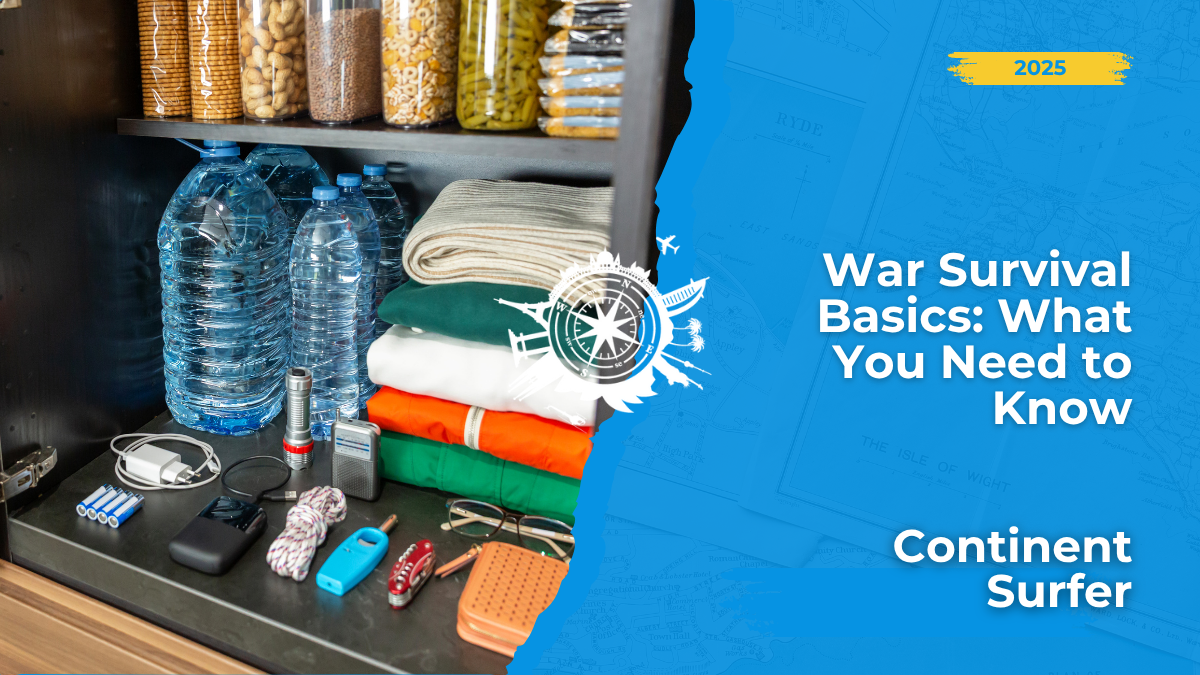War Survival Basics: What You Need to Know
This essential guide provides a comprehensive overview for beginners on preparing their homes for a war-torn situation, focusing on crucial aspects like emergency food and water supplies, first aid, and power outage preparedness. By offering practical advice on everything from communication plans to mental resilience, it empowers individuals to enhance their survival chances and maintain comfort during uncertain times. Prioritising gradual preparation over panic, the article emphasises that a well-prepared home can become a vital sanctuary.
written by: CS – Continent Surfer
In a war-torn situation, your home can become your most important sanctuary. Proper preparation can significantly increase your chances of survival and comfort during uncertain times. Here’s what to focus on:
1. Emergency Food and Water Supply
This is the foundation of everything. Ensure you have enough food and drinking water in your home for at least two weeks, but ideally a month.
- Water: Calculate 3-4 litres per person per day for drinking and hygiene. Store bottled water and consider acquiring water purification tablets or a high-quality water filter.
- Food: Focus on non-perishable foods that can be eaten without cooking: canned goods (vegetables, fruits, meat), pasta, rice, dried legumes, crackers, energy bars, dried fruits, and nuts. Don’t forget baby food and pet food if needed. Regularly check expiration dates!

2. First Aid Kit and Medications
A comprehensive first aid kit is essential. It should include:
- Sterile bandages, gauze pads, adhesive tape
- Antiseptics (e.g., iodine, hydrogen peroxide)
- Pain relievers, fever reducers
- Anti-allergy medication
- Anti-diarrhoea medication
- Rehydration salts
- Special medications (e.g., insulin, heart medication) – have at least a month’s supply and regularly check their expiration dates.
- Scissors, tweezers, surgical gloves
- Thermometer

3. Power Outages
Utility disruptions can be a real threat. Be prepared:
- Lighting: Flashlights (and spare batteries), headlamps, candles, gas-powered lanterns. Consider a solar charger for phones and smaller electronic devices.
- Heating/Cooking: If you have a fireplace or stove, have enough firewood. A portable gas stove for camping can also be useful, but only use it in well-ventilated areas!
- Radio: A battery-powered or hand-crank radio (ideally with a weather radio function) is essential for gathering information.
4. Personal Hygiene
Maintaining hygiene is critical for preventing illness.
- Soap, hand sanitiser, wet wipes
- Toothbrush, toothpaste
- Shampoo
- Feminine hygiene products
- Trash bags and wet wipes can also be useful in the absence of a toilet.
5. Documents and Valuables
Prepare a waterproof folder containing copies of your most important documents (ID card, passport, birth certificate, marriage certificate, bank cards, insurance papers, vaccination records). Store digital copies securely, in the cloud or on an encrypted USB drive. Keep a small amount of cash on hand.
6. Communication
- Alternative Communication Devices: Mobile networks can collapse. Consider a CB radio or walkie-talkie for family communication if possible.
- Family Plan: Discuss what to do if you get separated. Where to go, who to notify, what is the emergency meeting point.

7. Safety and Shelter
- Reinforce Windows and Doors: If possible, prepare materials to cover windows (e.g., wooden boards, thick blankets) for protection against explosions or shrapnel.
- Create a Shelter Area: Designate a room in your home that seems safest (e.g., basement, windowless room, innermost part of the house). Bring blankets, pillows, water, and some food there.
- Fire Extinguisher: Have a working fire extinguisher at home.

8. Tools and Useful Equipment
- Multi-tool: A Swiss Army knife or similar device.
- Hand Tools: Screwdrivers, hammer, pliers.
- Lockable Knives: Always useful.
- Rope: Can be used for many things in emergencies.
- Duct Tape, Sellotape: For repairs.
- Heavy-duty Trash Bags: Suitable for water collection or building temporary shelters.
9. Mental Preparedness and Information Gathering
- Stay Calm: Panic is the greatest enemy. Practice stress management techniques.
- Gather Information: Follow official sources (disaster management, government) for information. Do not spread panic-inducing or unverified news.
- Skill Development: Learn basic first aid techniques, fire starting, and water purification.
IMPORTANT: This list is a “what you can do” guideline, not a collection of items to be acquired immediately and in a panic. Start with the most important things and gradually build up your supplies. The key is awareness and gradual preparation, not fear. The most important thing is always the protection of human life and the preservation of peace.
If you feel anything essential is missing from this list, please send it to us via email at hello@continentsurfer.com!
Did you know?
During the siege of Leningrad in World War II, which lasted for 872 days, citizens displayed incredible resilience. Despite extreme famine and cold, they organised “victory gardens” in parks and squares to grow food, showcasing how community and resourcefulness can emerge even in the direst circumstances. This historical event highlights the importance of adaptability and communal support when faced with prolonged hardship.

Like what we do?
If so, please support us, every little counts and is much appreciated!
You will help us to come up with useful information regularly, so please support us every once and a while or even monthly! Thank you!
Source(s):
Join the Continent Surfer community!
Subscribe to our newsletter and be the first to receive the latest news, useful tips, and exclusive offers!
Comment

